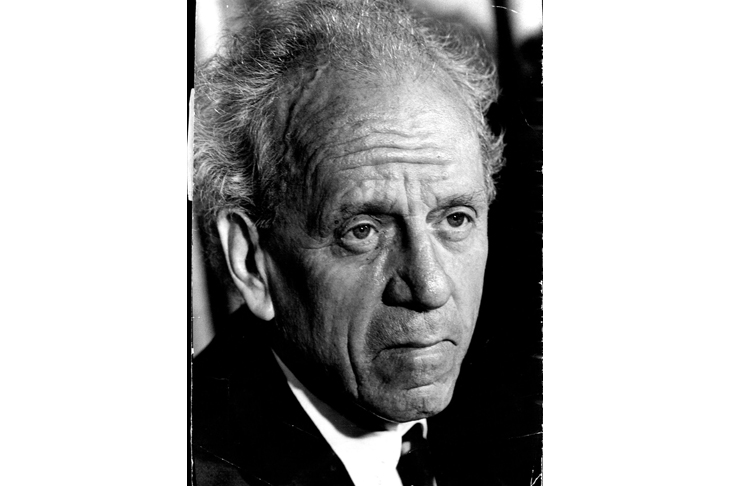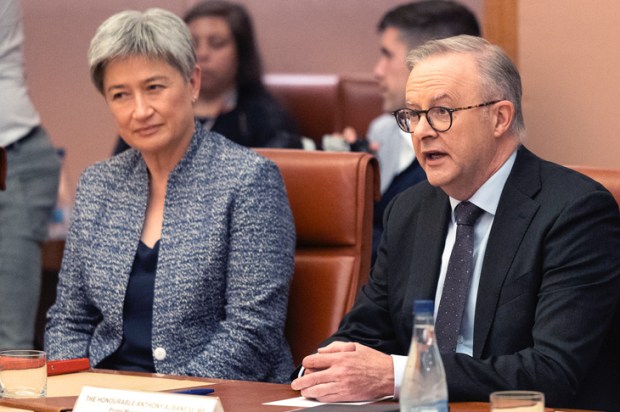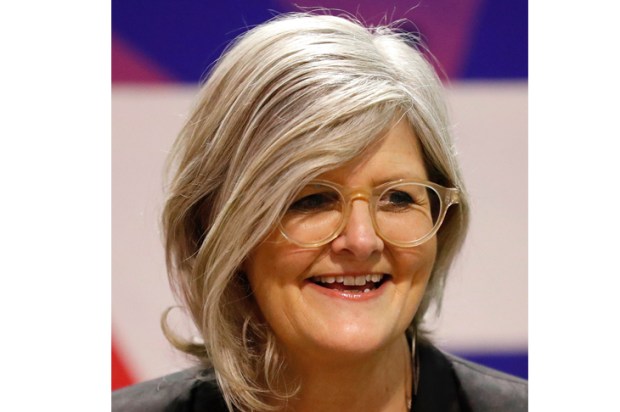With the opposition opposed to a constitutionally entrenched Voice, it would be surprising if there were no interest in the views of the party’s founder, Sir Robert Menzies.
On second thoughts, that may not be so surprising. There has been barely any interest, except on ADH TV, in the only organisation with living experience of running a successful referendum campaign.
In any event, Menzies enjoyed greater and wider influence at home and abroad on a range of issues than any other Australian leader.
As to Menzies and the Voice, I decline to follow Liberal grandee Amanda Vanstone’s example during the republic referendum.
Campaigning for the Turnbull-Keating republic, she would frequently claim that if Sir Robert were alive, he would be a republican.
Whether this was through a seance, I do not know, but on the Voice there is other evidence concerning Menzies.
As I mentioned here, that formidable Liberal statesman, Reg Withers, tiring of watching republicans at one another’s throats at the 1998 Constitutional Convention, told me about Menzies’ views. As father of the 1967 Aboriginal referendum, Menzies was strongly opposed to Canberra adding to its over-full armoury the power to pass special laws with respect to people of the Aboriginal race.
Menzies presciently warned that this would produce a massive, centralised bureaucracy, which would be of absolutely no assistance whatsoever to the Aboriginal people.
According to Withers, Sir Robert insisted that the federal government could do everything it needed to do – everything – to assist the Aboriginal people through conditional grants to the states authorised under the constitution.
Wither’s assertion is corroborated in considerable detail in Hansard which records Menzies in 1965 on the preparations for the referendum.
While the formal part of Menzies’ referendum Bill involved repealing the so-called census provision, the real point was that it would effectively confirm a national wish that the Aboriginal people be treated as Australians in all respects.
Menzies rejected calls to give Canberra the power to make ‘special laws’ with respect to people of the Aboriginal race.
Passing a separate body of industrial, social, criminal, or other laws relating exclusively to Aborigines, he insisted, would not be in their best interests. He enunciated what the overall objective of the exercise should be.
This was to treat the Aboriginal people as on the ‘same footing’ as all the rest with the ‘same rights and duties’.
While conceding there might be some need in the future – e.g. finding Nauruans a new home – Menzies wondered why the race power still existed.
He found removing it to be an ‘attractive argument’.
In fact that was subsequently proposed by the Aboriginal lobby until 2015, but with a confusing Aboriginal-only replacement.
In any event, Menzies insisted in 1965 that the ‘best protection’ for the Aboriginal people was to be treated ‘for all purposes’ as Australian citizens.
Menzies thus demonstrated what a great statesman he was. Under him, Sir Paul Hasluck was doing what Menzies prescribed, attempting to treat for all purposes the Aboriginal people as Australian citizens, a policy called ‘assimilation’.
That was before ‘assimilation’ was made a dirty word, first by the Australian Communist party following purported Soviet policy in handling the national minorities issue. This was not the first time that a communist-created solution has been adopted especially with the assistance of the elites. Nor, obviously, is it the last.
Menzies retired at the beginning of 1966 after holding office for over 18 years. His referendum Bill was allowed to lapse.
In the replacement Bill, his successor Harold Holt rolled over to Labor’s and others’ demands that the race power be amended to allow Canberra to pass special laws for the Aboriginal people, exactly what Menzies warned against.
A strong supporter of this, opposition leader Gough Whitlam said that if the referendum were passed there would be no alibis in the future for failure to improve the conditions of the Aborigines. He said that the Commonwealth’s inability to make special laws for Aborigines in the states had inhibited progress even in the Northern Territory. He was wrong and Menzies was right. After 56 years the gap is still there.
Holt compounded his error by appointing H.C. ‘Nugget’ Coombs to a key policy role which led to the reversal of assimilation and its replacement by segregated separate development.
This error was then compounded again by Whitlam’s introduction in government of welfare dependency, famously described by Aboriginal wits as ‘sit-down money’.
Whatever the colour or race of the recipient, it is hard to consider a more morally corrupting and personally ruinous institution.
Then in 1992 we had a majority of High Court judges offering their non-solution to closing the gap by creating native title.
Had Menzies’ advice been followed, the federal parliament could not have institutionalised this by legislation, thus enabling a narrow Aboriginal establishment to extract increasing wealth from charges on mining and other activities without in any way closing the gap.
Now the Albanese government wants to make this even worse by locking in a so-called indigenous Voice into the constitution. They won’t even trial it by legislation.
Not only does this, on the best legal advice, risk making the country close to ungovernable, but it will also certainly not close the gap. Instead, it risks making it worse. If it were to be incorporated into the constitution, everyone, including the media, will say, ‘Problem solved’.
It won’t be, but the real situation will be ignored for years, as it has been with every other failed solution in the past.
The government is doing what the founders specifically warned against, trying to slip through change in the constitution ‘in haste’ or ‘by stealth’, a point which Alan Jones discussed with me recently on ADH TV.
Fortunately, our ancestors inserted a safeguard against this, the Swiss-style referendum.
We just have to remember Alan Jones’s universal advice which he offered regularly in 1999, ‘If you don’t know, Vote No.’
Got something to add? Join the discussion and comment below.
Get 10 issues for just $10
Subscribe to The Spectator Australia today for the next 10 magazine issues, plus full online access, for just $10.
You might disagree with half of it, but you’ll enjoy reading all of it. Try your first month for free, then just $2 a week for the remainder of your first year.














Comments
Don't miss out
Join the conversation with other Spectator Australia readers. Subscribe to leave a comment.
SUBSCRIBEAlready a subscriber? Log in